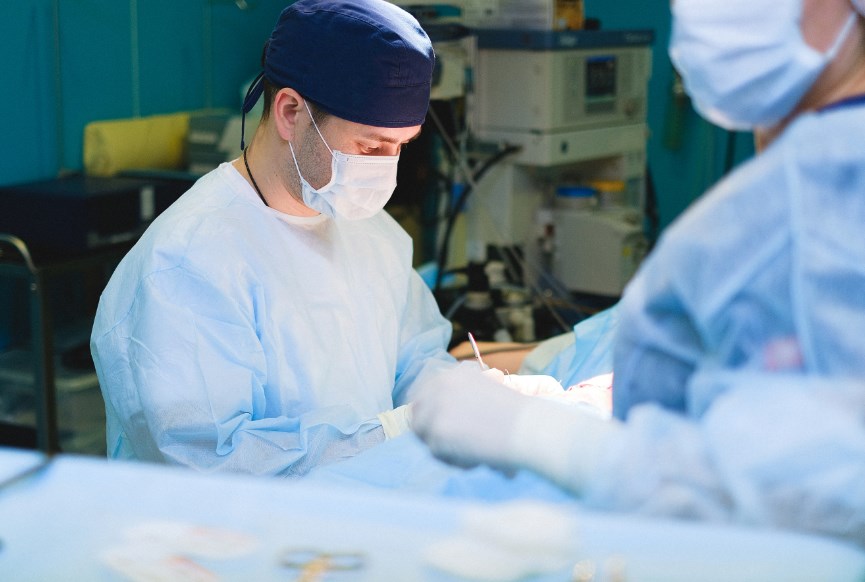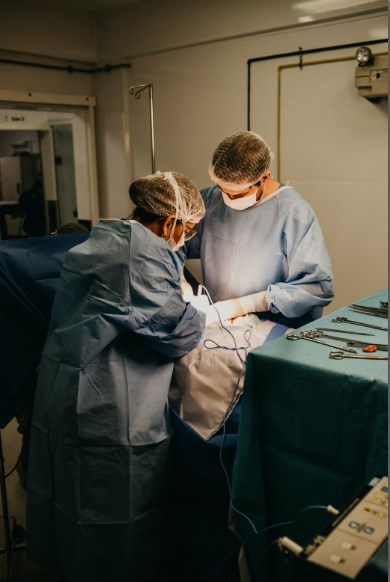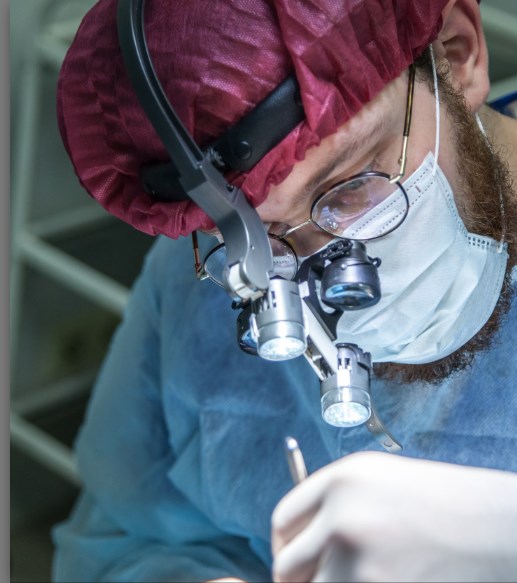Liver transplantation has long been seen as a life-saving procedure for patients with severe liver diseases. But have you ever wondered where this incredible medical journey is heading? Imagine a world where organ rejection is a thing of the past, surgeries are faster and safer, and waiting lists are drastically shorter. It’s not science fiction—it’s happening right now!
In this article, we will take a deep dive into the future of liver transplantation. From groundbreaking research to the role of artificial intelligence, we’ll explore what makes the future bright and why choosing the best liver transplant surgeon in India is so crucial.
📋 Table of Contents
| Sr# | Headings |
|---|---|
| 1 | What is Liver Transplantation? |
| 2 | Why Liver Transplants Are Crucial |
| 3 | Current Challenges in Liver Transplantation |
| 4 | Advancements in Surgical Techniques |
| 5 | Role of Artificial Intelligence in Liver Transplantation |
| 6 | 3D Printing and Customized Organs |
| 7 | Stem Cell Research and Regenerative Medicine |
| 8 | Improving Organ Preservation Techniques |
| 9 | Living Donor Liver Transplants: A Growing Trend |
| 10 | Reducing Organ Rejection Risks |
| 11 | Shorter Waiting Times and Better Matching Systems |
| 12 | Telemedicine in Post-Transplant Care |
| 13 | Patient Stories: Real-Life Hope and Success |
| 14 | Finding the Best Liver Transplant Surgeon in India |
| 15 | The Road Ahead: What to Expect in the Next Decade |
1. What is Liver Transplantation?
Simply put, a liver transplant is a surgical procedure where a damaged liver is replaced with a healthy one from a donor. It’s like giving someone a second chance at life. If your liver is failing due to diseases like cirrhosis, hepatitis, or liver cancer, a transplant becomes necessary.
2. Why Liver Transplants Are Crucial
You might wonder, why not just treat the disease with medication? The liver is a powerhouse organ– it performs over 500 functions, from detoxifying blood to producing essential proteins. When it fails, no medication can fully replace its function, making transplantation the only viable solution.
3. Current Challenges in Liver Transplantation
Even though liver transplants save lives, several hurdles remain:
Shortage of Donors: Many patients die waiting for a suitable liver.
Risk of Rejection: The immune system often attacks the new organ.
High Costs: Not everyone can afford the surgery or follow-up care.
Think of it like trying to fix an old car with parts that don’t always fit. Every surgery presents a unique challenge.
4. Advancements in Surgical Techniques
The future of liver transplantation is bright, thanks to innovations in surgical methods:
Minimally Invasive Surgery: Laparoscopic techniques reduce recovery time and risk of infection.
Robotic Surgery: Surgeons can now operate with precision using robotic arms, leading to safer and more successful transplants.
These advancements make the surgery less like open-heart surgery and more like a precise craft.
5. Role of Artificial Intelligence in Liver Transplantation
Artificial Intelligence (AI) is transforming how doctors diagnose, plan, and perform liver transplants:
Predictive Analysis: AI algorithms analyze patient data to predict the best timing and matching donor organs.
Surgical Assistance: AI guides surgeons in real-time, reducing errors and improving outcomes.
Imagine a super-smart assistant that never gets tired and always provides the best advice.
6. 3D Printing and Customized Organs
Have you heard about 3D-printed organs? While fully functional 3D-printed livers aren’t available yet, researchers are making huge strides:
3D Printed Liver Models: These help surgeons plan complicated surgeries.
Bioprinting: The goal is to create tissue layers using a patient’s own cells, reducing rejection.
It’s like printing a custom-fit suit, but for your body.
7. Stem Cell Research and Regenerative Medicine
Stem cells are magical in their ability to transform into any cell type. In liver transplantation, they offer hope:
Regeneration of Liver Tissue: Instead of replacing the whole organ, damaged parts might be repaired using stem cells.
Reducing Dependence on Donors: In the future, patients could have their liver cells regenerated, minimizing the need for donor organs.
Think of stem cells as tiny repair workers within your body.
8. Improving Organ Preservation Techniques
One of the biggest problems today is keeping the donor liver viable before transplant. New technologies aim to:
Extend Preservation Time: Advanced cooling solutions and machine perfusion keep the liver healthy longer.
Better Monitoring: Real-time monitoring ensures the organ stays in prime condition.
It’s like giving the liver its own life-support system until surgery.
9. Living Donor Liver Transplants: A Growing Trend
Instead of relying only on deceased donors, living donor transplants are gaining popularity:
Partial Liver Donation: A healthy person donates a part of their liver, which regenerates over time.
Faster Matching: Family members often make the best matches, reducing waiting time.
This approach is a lifeline for many and growing steadily in India.
10. Reducing Organ Rejection Risks
Rejection is the body’s way of protecting itself but is dangerous in transplants. The future holds solutions:
Personalized Immunosuppressive Therapy: Tailored medication regimens reduce side effects and improve outcomes.
Immune Tolerance Strategies: Research is underway to ‘train’ the body to accept the new liver naturally.
Imagine teaching your body to recognize the new liver as part of ‘the family.’
11. Shorter Waiting Times and Better Matching Systems
Long waiting times can be life-threatening. Here’s how technology helps:
Organ Sharing Networks: Digital platforms connect hospitals to share organs more efficiently.
AI Matching Systems: Algorithms ensure optimal matches faster, improving survival chances.
It’s like having a smart dating app for organ donors and recipients.
12. Telemedicine in Post-Transplant Care
Follow-up care is essential for transplant success. Telemedicine brings healthcare to your doorstep:
Virtual Check-ups: Patients consult doctors from home, saving time and travel.
Remote Monitoring Devices: Wearable tech monitors vital signs and alerts doctors in real-time.
This is especially helpful for people in rural areas, ensuring expert care isn’t far away.
13. Patient Stories: Real-Life Hope and Success
Take Ramesh, a 45-year-old man from Delhi. Diagnosed with severe liver disease, his life turned around after a successful transplant by one of the best liver transplant surgeons in India Thanks to advanced techniques and personalized care, he’s back to enjoying life, walking his kids to school and celebrating festivals with joy.
Stories like Ramesh’s remind us why these innovations matter.
14. Finding the Best Liver Transplant Surgeon in India.
Choosing the right surgeon is as important as the procedure itself. Here’s why:
Experience Matters: The best surgeons have years of experience handling complex cases.
High Success Rates: Look for hospitals with consistent, positive outcomes.
Compassionate Care: A surgeon who communicates clearly and cares for your well-being makes the journey easier.
If you or a loved one needs a transplant, trust only the best liver transplant surgeon in India to guide you.
15. The Road Ahead: What to Expect in the Next Decade
What does the future hold for liver transplantation?
Bioengineered Organs: Fully functional lab-grown livers could be available.
Advanced AI Tools: Surgeons will operate with even smarter AI assistance.
Global Organ Sharing: A worldwide network may make organ availability universal.
In short, the future looks incredibly promising and more accessible than ever.
Dr. Neerav Goyal is a distinguished liver and gastrointestinal surgeon with over two decades of surgical excellence. With a remarkable track record of more than 2,500 successful liver transplantations, he is widely recognized for his exceptional expertise in liver transplants, complex organ surgeries, and advanced gastrointestinal procedures.
Holding DNB qualifications in Surgery and Gastrointestinal Surgery, and a proud member of MNAMS, Dr. Goyal combines vast clinical experience with compassionate patient care. He is currently associated with the prestigious Indraprastha Apollo Hospital, New Delhi, where he continues to set new benchmarks in surgical outcomes.
For appointments and consultations:
📞 +91 8527516541
Conclusion
Liver transplantation is evolving at a pace that brings hope to millions. With advancements like AI, stem cell therapy, and improved surgical techniques, the dream of a safer, quicker, and more successful transplant is becoming reality. For anyone facing this challenging journey, knowing that experts, particularly the best liver transplant surgeon in India, are at the forefront provides immense reassurance.
Frequently Asked Questions (FAQs).
1. What makes the best liver transplant surgeon in India stand out?
The best liver transplant surgeon in India stands out due to years of experience, high success rates, compassionate care, and use of advanced technologies.
2. Is liver transplantation the only option for liver failure?
In severe cases of liver failure where medication and other treatments don’t work, liver transplantation becomes the only life-saving option.
3. How safe is liver transplantation today?
With modern surgical techniques and improved post-operative care, liver transplantation has become significantly safer with higher survival rates.
4. Can I get a liver transplant without a living donor?
Yes, many liver transplants are done using deceased donor livers, though living donor transplants are increasingly popular for faster access.
5. How do I know if I’m a candidate for liver transplantation?
Your doctor will evaluate your overall health, liver condition, and other factors. A consultation with a transplant specialist is necessary to assess your eligibility.





